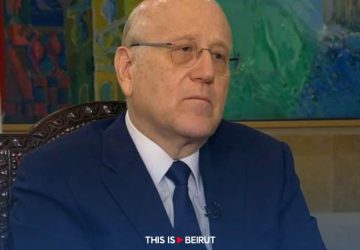Listen to the article
An estimated 64 million Turkish voters will head to the polls on Sunday (March 31) to elect municipal and local councils across 81 provinces. These elections are fraught with political calculations, particularly for the ruling party, and President Recep Tayyip Erdogan who seeks a decisive victory to solidify his popular legitimacy.
In the last local elections in 2019, the Turkish President suffered a painful blow as his party lost control of the key municipalities of Ankara (the political capital) and Istanbul (the primary economic hub where Erdogan launched his political career as mayor of the city in 1994). Erdogan now banks on his party’s landslide victory in the municipal councils to change the dynamics in parliament, where he presently lacks a comfortable majority. A win could provide him with the leverage needed to amend his second presidential mandate, which expires in 2028. It would be his last term under the present Constitution.
Erdogan wants some undecided or ambivalent parliamentary blocs to reevaluate their positions regarding constitutional amendments, given the anticipated popular outcomes of the upcoming municipal elections. His objective is to secure a parliamentary majority for himself and his party, despite his earlier declaration that the local elections would be his last one. However, this does not seem to be true for the presidential elections scheduled in about four years.
Erdogan had been actively pushing for the conversion of the political system into a presidential one, since he assumed the presidency for the first time in 2018, endowing himself with extensive constitutional and political prerogatives. This involved building presidential palaces in different areas across the country and engaging in “rituals and protocols” aimed at creating a certain presidential “aura” that he always sought to nurture.
Notably, the six major opposition parties, which had unified against Erdogan last year and suffered a painful political and electoral defeat, have split up following the elections. They have taken different paths concerning several issues and domestic dossiers, or matters regarding Turkish foreign policy. The significance of this factor cannot be ignored, considering the prevailing sentiments of disappointment among voters due to the opposition’s performance and its failure to achieve the desired political breakthrough.
Moreover, significant segments of voters believe that Erdogan reinforced Turkey’s international presence and bolstered its influence in the Middle East. They cite his invasion of northern Syria, his role in Libya and Iraq, and the reconciliation with Egypt and Saudi Arabia as examples. While the policy of “zero problems” with Turkey’s neighbors succeeded for a limited time, its collapse in Syria and Iraq did not prevent the “normalization” of relations with Egypt and Saudi Arabia. Both countries represent considerable political and economic weight in the Middle East and the Arab region as a whole.
However, not all segments of society endorse the idea of Turkey expanding its role in the region. Many are more concerned about Turkey’s internal situation amid the economic downturn, the near-collapse of the Turkish currency and the alarming rise in inflation rates, compounded by the government and monetary authorities’ procrastination in checking the decline and restoring confidence.
Turkey’s political paths in the next phase will be clarified in light of the elections’ results and repercussions. The internal political “game” would be determined by the balances of power that will result from these elections, especially in the country’s big cities.





